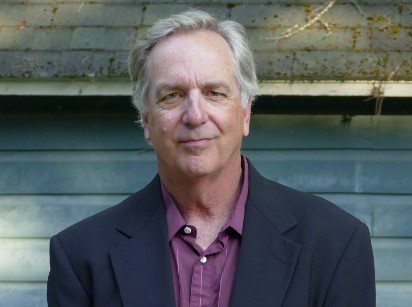This is the first in a series of interviews about the importance of authentic interpersonal communication and how it can improve business and personal relationships. In February 2025, Chuck Epstein, editor of The Progressive Investor, interviewed Matt Perry, the founder of The Other Consulting Group.
Why Don’t We Communicate Better?
An old Chinese curse says, “May you live in interesting times.” That’s truer today than at any time in modern American history. So, how do we cope with these interesting times characterized by division, arguments, loneliness, and separation? How do these opposing forces affect our relationships at home, in the workplace, and between our families, friends, co-workers, strangers, and loved ones?
For years, the prevailing psychological paradigm has been self-help, and many forms of self-improvement. These therapies made you the center of the solution. However, self-help can quickly become selfish if you only focus on yourself. This shows self-absorption,
impatience, and a profound inability to communicate.
But what if we could discover a better way to communicate?
And that’s where today’s guest offers a unique perspective on contemporary communications practices.
Matt Perry is the founder of The Other Consulting, based in Asheville, North Carolina. He has spent a lifetime exploring, teaching, and writing about communication, perspectives, and what he calls “The Other.” He’s here today to talk about this new approach to interpersonal communications and how it can improve personal and workplace relationships.
CE: Welcome Matt. Can you give us an overview of what The Other Consulting is all
about?
Matt: Yes! But first, a little history. The idea of “The Other” comes from the famous book “I And Thou” by German philosopher Martin Buber over 100 years ago. Buber said we could relate to other humans as objects – “I and It” – or as absolutely unique, fully human, even sacred beings – “I and Thou.” Today, with so much divisiveness and animosity, it’s become apparent that most of us see other people as objects. If we can move towards a more humane view of others – especially among those we disagree with – our relationships change, divisions dissolve, and the world evolves. That’s the foundation of this new business. 
CE: Your bio also says you are an award-winning filmmaker, healthcare journalist, and Somatic Coach. In those capacities, you have spent your professional career observing the complex inner workings of people and organizations. What did you discover when you were making these observations?
Matt: The most important change is that we’re getting worse at listening and connecting. We’re in an era of intense self-absorption. Ask anyone “What’s the biggest problem in today’s world?” and they will answer the same: “Everybody’s in it for themselves. They don’t care about anyone else.”
Have you ever met someone for the first time, and they immediately launched into a lengthy monologue, talking “at” you instead of “with” you? That’s now very common. Instead of true dialogue, we have two disconnected monologues. It’s maddening.
Meanwhile, we’ve completely lost touch with the importance of communication itself. We blast through emails, texts, and messages without giving any thought to the act itself. We’re so careless and cavalier. Gregory Bateson—who was married to the anthropologist Margaret Mead—said, “Communication is sacred.” And when we mistreat the form, it becomes an act of violence! It’s that important.
Here’s an example. Do you know what “dialogue” actually means? It’s very different from what we think. Most people think it’s “You say something” then “I say something.” But true dialogue means something very different. It means to discover something that neither of us knew at the start. Dialogue includes discovery! We’ve completely forgotten that.
David Brooks, the amazing columnist for the New York Times, wrote that he’s no longer interested in what people believe. Instead, he’s far more interested in why they believe what they believe. What is the story behind their beliefs? Because their story is far more important than anything else. We’re all craving to share our story. Yet, too often, nobody is listening.
CE: So, what does The Other Consulting offer?
Matt: Most importantly, the so-called “soft skills” of the past—communication, connection, and empathy—are no longer optional. Today, they’re essential for every organization, especially for managers and leaders. I recently talked to a leadership consultant from Minnesota, and she said something that really shocked me: “Today’s leaders are better off with a degree in psychology than an MBA.” When I heard that, I knew I was on the right track.
What I offer depends on an organization’s needs. That’s where my journalism experience comes in handy. It’s important not to ask questions… but to ask the right questions. I help organizations first identify very clearly what the problem is—which is often very different from what they think it is!
I can work with managers or teams to help them see The Other all around them. Or explore more deeply what’s wrong with the organization. Let me give you some examples. I can work with those terrible bosses who act like dictators and discourage employees instead of encouraging them to be their best. I also help teams collaborate better by encouraging new ideas and creativity, acknowledging that everyone is deeply human – not just objects to be moved around a chessboard. They should be free to make mistakes. It’s amazing what can happen when people feel seen, heard, and respected.
I also help with organizational change. So often, a systemic problem within the organization hides in plain sight. Communication is lousy. Distrust is rampant. Morale is in the tank. I offer a Method in which we first discover the real problems, test drive some initiatives to address them, put an “ambassador” in charge of each initiative, and then measure outcomes.
Your website says you “humanize” an organization. Many businesses already claim to be
customer-focused, but you have a different definition. What is it?
Let me start with a story.
I once visited my elderly friend Gail who was in rehab following cardiac surgery. The facility was a cross between “senior living” and a hospital. It was very sterile. All the attendants were overworked and underappreciated. And the residents suffered because of it – they were being treated like objects. Since I wanted good care for my friend Gail – she’s an absolutely amazing human being – I decided to try something. A social experiment of sorts.
One day, when one of her regular caregivers was in the room, I said to her, “Gail has lots of people supporting her, but you’re her favorite, and she really appreciates your help.” The caregiver blossomed! Afterward, Gail told me that the woman was even more helpful and attentive. All she needed was to feel seen and appreciated. It’s a thankless job, and she just wanted to be thanked.
We’re so caught up in data during our “Age of Information” that we think facts are the answer. Actually, it’s the intangible qualities – those soft skills – that are becoming more important every day. Data often gets us nowhere.
Did you know MIT has a Presencing Institute? Leaders with character who are truly present and care about their employees can often solve the most intractable problems. Once again, soft skills take center stage.
CE: Your website also says, “We create environments where both sides of any issue can be right.” How can that be, and how do you do that?
Matt: All the time, I see people arguing about a topic in such black-and-white terms, they’re blind to the possibility of agreement. Common ground isn’t always apparent at first. Sometimes, you have to start as simple as “Do both of us want to be happy?” Yes, of course. “Do both of us want to be treated with respect?” Yes. “Do both of us bleed red?” Yes – and while that may seem silly to agree on, we’ve moved into the body and how similar we are under the surface.
The scholar Yuval Noah Harari, author of the book “Sapiens,” said something really important – and I’m paraphrasing. “We don’t fight over facts; we fight over the stories underneath.” When someone tells you their story, you suddenly get a much more complex and nuanced understanding of their beliefs. An idea that a moment ago you considered “ridiculous” or even “insane” suddenly makes sense. When we humanize The Other, they suddenly become someone shocking, just like us. When we listen to how someone got their beliefs, we often stop fighting them.
In the real world, one very cool way of achieving this goal is through an immersive experience. Role-playing. It’s easy to get lost in our heads. But the moment we literally “walk in another person’s shoes,” something very powerful happens. We don’t say, “I know what you’re going through,” but “I feel what you’re going through.” Have you ever seen that TV show “Undercover Boss”? These bosses, in disguise, work for their own companies and really see what life is like! So brilliant.
CE: Another interesting service you offer, and I have not heard about it before, is somatic practice. Can you define that, and how does it fit into your approach?
Matt: The “soma” is the Greek word for “body.” But the Greeks looked at the soma in a much more expansive way. For them, the soma includes everything that makes us human: our family, education, beliefs, diet, nationality, spirituality, sexuality, everything.
Today, we think that “I” means our mind. What we think. But research is showing us that the body is this incredible haven for all sorts of things. We now know that we actually have the equivalent of brain cells in both our heart and gut. Think about that! And how much sense it makes when we have a “gut feeling” or a “heart connection.”
We now know that trauma is literally stored in the body, in the muscles and fascia and cells – everywhere. This explains why talk therapy often doesn’t help trauma victims. In fact, talking often doesn’t help solve many of our problems. We make the huge mistake of thinking that our thoughts and brains are “Me.” Which is completely false. We need to embrace the human body in every part of life. We can discover insights from the body that are beyond the mind. Memories themselves may be stored in the body – not in the brain. It’s a crazy time of discovery for sure!
The biggest problem of the modern age is that we are insanely out of balance. We’re stuck in our heads and not truly embodied. If we can move from our heads down into our bodies—especially our hearts—we can solve so many problems, especially connecting with others.
CE: Since you’ve been studying this for a long time, what changes have you seen in the workplace and in employees that make you think your approach is beneficial and can improve productivity?
Matt: Well, productivity isn’t necessarily the goal. Happier people who are seen as fully human is the goal. What follows is a cascading series of benefits that include commitment and creativity that lead to better quality work and – maybe – higher productivity. A better experience at work means more cooperation, more harmony, and better lives – including better lives away from work. Work is a subset of life. Not the other way around.
Yes, there are tons of organizations that “get it” and are doing it right. The first that comes to mind is Zappos, the shoe company in Las Vegas. Immediately, new owner Tony Hsieh decided that Zappos was, first and foremost, a customer service company that just happened to sell shoes. A total inversion of the sales paradigm. Employees were given amazing freedom to be fully human and treat customers as fully human. They’d decorate their office space any crazy way they wanted. Meetings were full of laughter. Staff could do nearly anything they wanted to make customers happy – often without management approval. The company took off in both sales and popularity. It was such a fun place that everyone wanted to work there.
CE: This has been a provocative discussion. How can people find out more about The Other
Consulting? How can they contact you, Matt?
Matt: Thanks. I can be reached via my website, which is www.theotherconsulting.com
Or you can call me, Matt Perry, at 916-320-0613.











